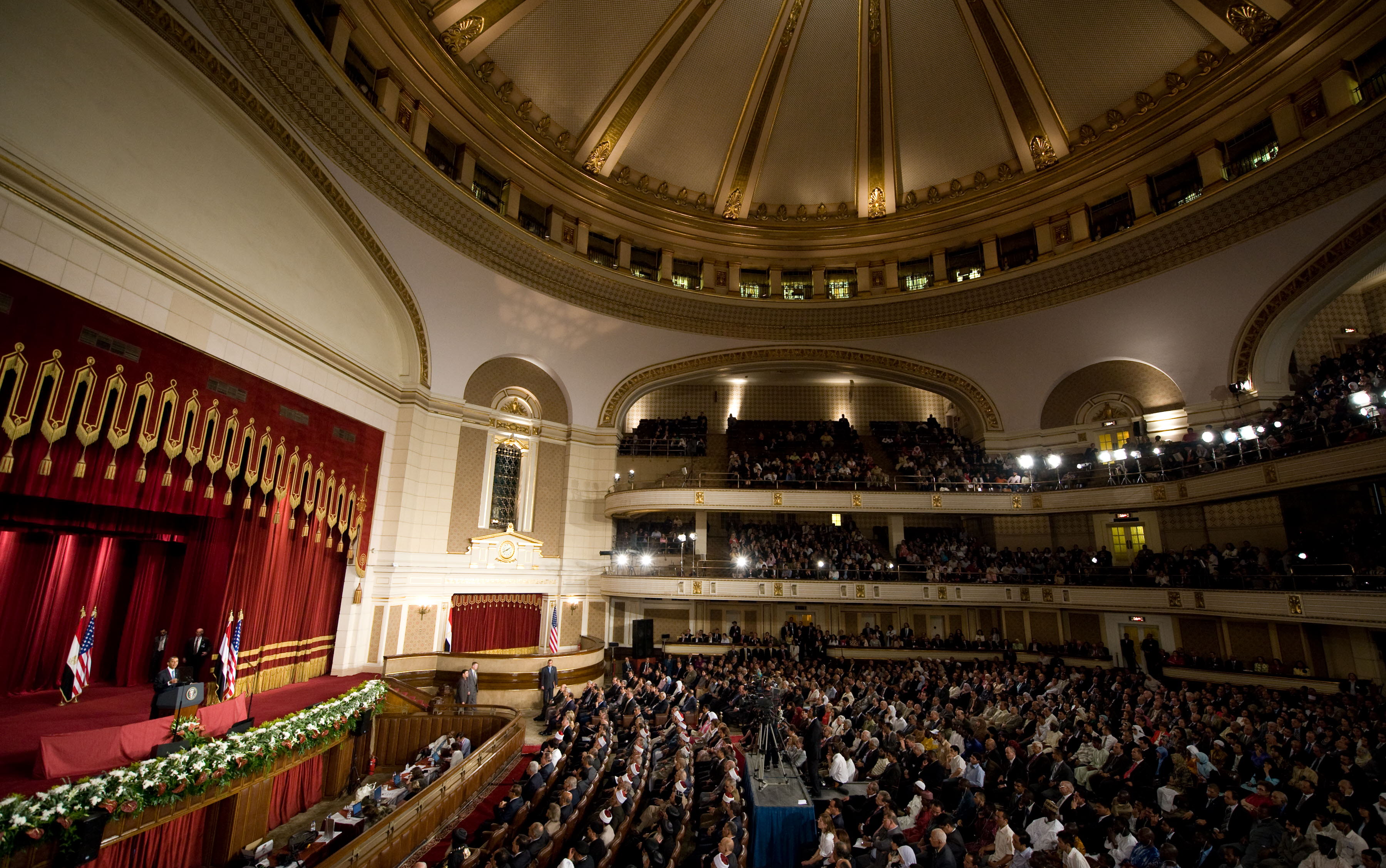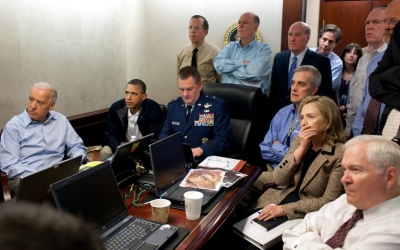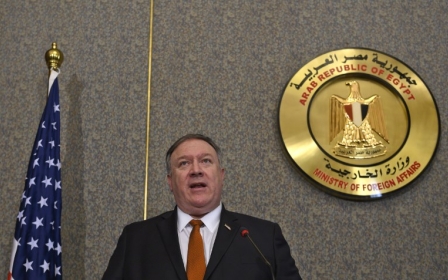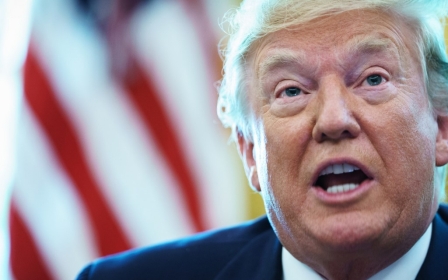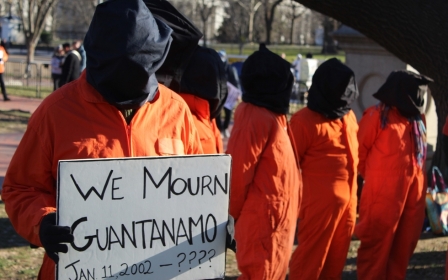Barack Obama: Imperial disdain for Too Far Left youth
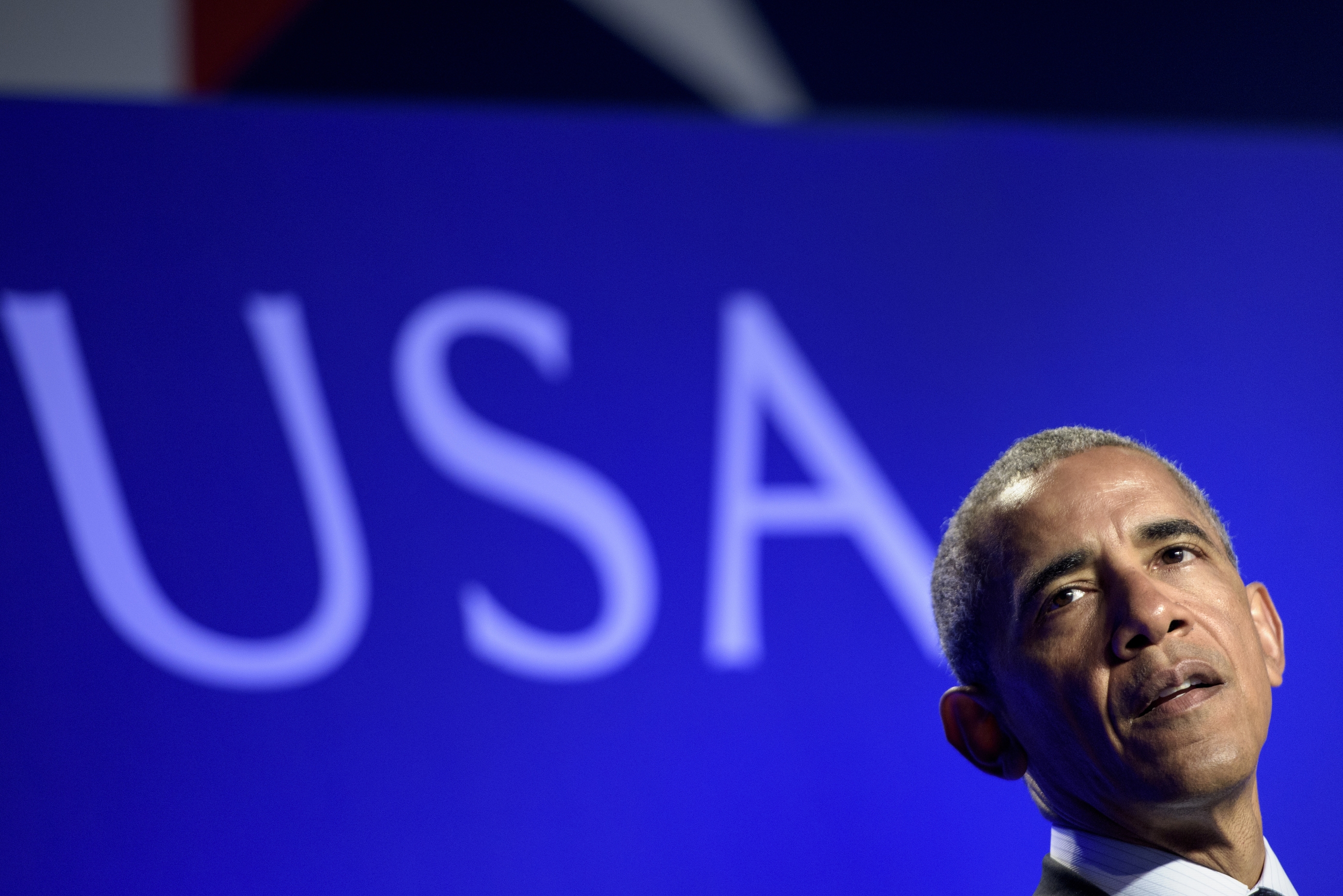
On 15 November, former US President Barack Obama spoke to a room full of wealthy liberal donors. During his address, he reportedly sent a message to Democratic leaders, presumably, Elizabeth Warren and Bernie Sanders, to avoid proposing ideas that were "too radical".
"This is still a country that is less revolutionary than it is interested in improvement,” he added. “They like seeing things improved, but the average American doesn’t think we have to completely tear down the system and remake it.”
Too far left
As presidential elections near, Democrats are charting a path to defeat Trump come November 2020. One thesis suggests that in order for the Democrats to win, they need to woo "moderate" Republican voters who recognise that Trump is no good for the country.
Obama’s comments speak directly to those concerns.
New MEE newsletter: Jerusalem Dispatch
Sign up to get the latest insights and analysis on Israel-Palestine, alongside Turkey Unpacked and other MEE newsletters
"My point is that even as we push the envelope and we are bold in our vision, we also have to be rooted in reality and the fact that voters, including Democratic voters and certainly persuadable independents or even moderate Republicans, are not driven by the same views that are reflected on certain, you know, left-leaning Twitter feeds or the activist wing of our party,” Obama said.
On social media, activists, progressive politicians, and others mocked Obama for deriding their want for a better, more equitable world with the # TooFarLeft
Recognising the palpable condescension in his riposte to grassroots activism, the backlash was almost instant. He was immediately called out for amplifying an anti-intellectual absurdity that is bipartisan politics in the US.
His endorsement of the hysterical liberal consensus that pits Trump as the beginning and end of American political perversion has aggravated a society already on edge.
On social media, activists, progressive politicians and others mocked him for deriding their want for a better, more equitable world with the #TooFarLeft hashtag.
It was Obama’s second faux pas in just a matter of days.
Cancel culture
At the end of October, speaking on a panel about youth activism at an event held by his foundation, Obama appeared to condemn "call-out culture" also known as "cancel culture" on the internet. He said that some young people seemed to think that the more judgemental they might appear to those they might disagree with online, the more savvy they would be as activists.
“This idea of purity and you’re never compromised and you’re always politically ‘woke’ and all that stuff,” Obama said. “You should get over that quickly. The world is messy; there are ambiguities,” he continued. “People who do really good stuff have flaws. People who you are fighting may love their kids, and share certain things with you.”
Obama chose to criticise youth activists who are willing to speak truth to power and challenge bogus thoughts like his on social media
Of course, call-out culture can be brutal, but those impacted most by social media bullying or cancel culture are often not the rich and the powerful. In fact, it is still minorities, people of colour and women who are the biggest victims of cyberbullying.
And often, it is powerful lobby groups who hire trolls and bots to target and bully people into submission. It is big tech that allows fake news to spread and hate groups to take root on our timelines and shape our echo chambers. If netizens are supposedly intolerant and judgemental, Big Brother is closely monitoring and controlling. Our data is being mined, used and sold back to us through things and ideas that we often have little control over.
But Obama was not talking about any of that.
He chose instead to criticise youth activists who are willing to speak truth to power and challenge bogus thoughts like his on social media; his was a backhanded complaint about being dragged by a new generation of youth unimpressed by those of his ilk who are in it for themselves.
But there is nothing really to be surprised about.
Polished polarising rhetoric
The calculated buffoonery, open xenophobia and misogyny that has accompanied the Trump presidency might have, by favourable comparison, turned Obama into the forever all-American president, but for many others willing to see Trump as only one grotesque part of Empire, they know that Obama, for all his shine, is not so distinct from Trump, after all.
Obama has exercised polished and eloquent rhetoric to sidestep meaningful dialogue and criticism. “He was a black face of the American empire,” as Cornel West once described him.
“He has, in my view, committed war crimes with his drones in Pakistan and Yemen and Somalia and Libya,” the Harvard Divinity School professor said.
In his final year in office in 2016, Obama dropped 26,171 bombs, or three per hour. Obama’s comments over the past few weeks tell us a little more about his legacy. First, it illustrates that Obama has yet to understand that the status quo for millions of Americans struggling for basics like healthcare, housing and wages is untenable.
Second, it demonstrates that ending the military-industrial complex that prioritizes arm sales or friendships with tyrannical states like Saudi Arabia and Israel isn't on his list of priorities as a former statesman and Nobel Peace Prize winner.
In fact, for all those who continue to live under the boot of the American empire, or suffer as a consequence of American foreign interests, Obama’s comments display an unyielding disinterest in the debris left by American imperialism.
Hollow politics
Third, Obama’s calls for an end to the demagoguery of the Trump era as well as for a return to a time of decorum - where "call-out culture" is frowned upon and "flawed" personalities are allowed to be themselves - is remonstrative of a fundamentally hollow politics that has come to define him.
It is the kind of politics that asks us to be polite to warmongers like George W Bush who led the world to war in Iraq while simultaneously asking us to jingoistically celebrate the death of Islamic State group leader Abu Bakr al-Baghdadi, who was in many ways a creation of these illegal, imperial conquests.
His is also a tremendous misreading of this historical moment, in which social media, for all its vices, remains one of the few spaces for millions of people, be they in America or elsewhere, to express their views.
With youth feeling especially disempowered politically as global elites congregate, the call for online decency is odious and illiberal
With youth feeling especially disempowered politically as global elites congregate, the call for online decency is odious and illiberal.
It is worth remembering that it is 10 years since Obama delivered that historic address in Cairo in which he spoke of “a new beginning between the United States and Muslims around the world, one based on mutual interest and mutual respect”. In that address, Obama famously encouraged democratisation and called for the maintenance of power through consent and not coercion.
A bankrupt legacy
But when the Arab Spring began some 18 months later, he helped demolish Libya and gave tacit approval to the military takeover of Egypt in the coup of 2013. He had drones murder suspects, including US citizens in foreign lands in which he oversaw the killing of hundreds of civilians and children.
Today, Trump might be the US president who denies the illegality of Israeli settlements, but it was Obama’s presidency that helped set up this moment.
Shall we forget that when former Israeli PM Shimon Peres died in 2016, Obama compared him to Nelson Mandela?
His attempts to curate the way young people talk online or call for stop-gap solutions in the face of larger social concerns today is either a concession that he is aware of the bankruptcy of his legacy or desperately trying to pull the wool over his own eyes, and ours, hoping that his tremendous failures will miraculously disappear.
The views expressed in this article belong to the author and do not necessarily reflect the editorial policy of Middle East Eye.
Middle East Eye delivers independent and unrivalled coverage and analysis of the Middle East, North Africa and beyond. To learn more about republishing this content and the associated fees, please fill out this form. More about MEE can be found here.



